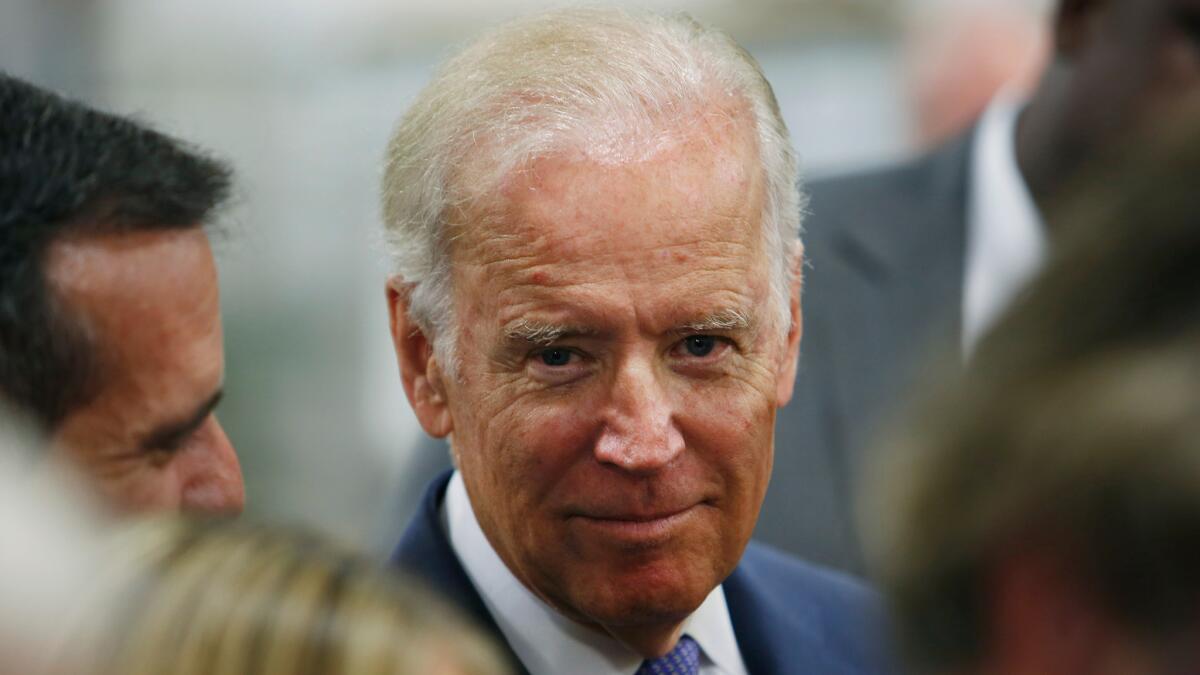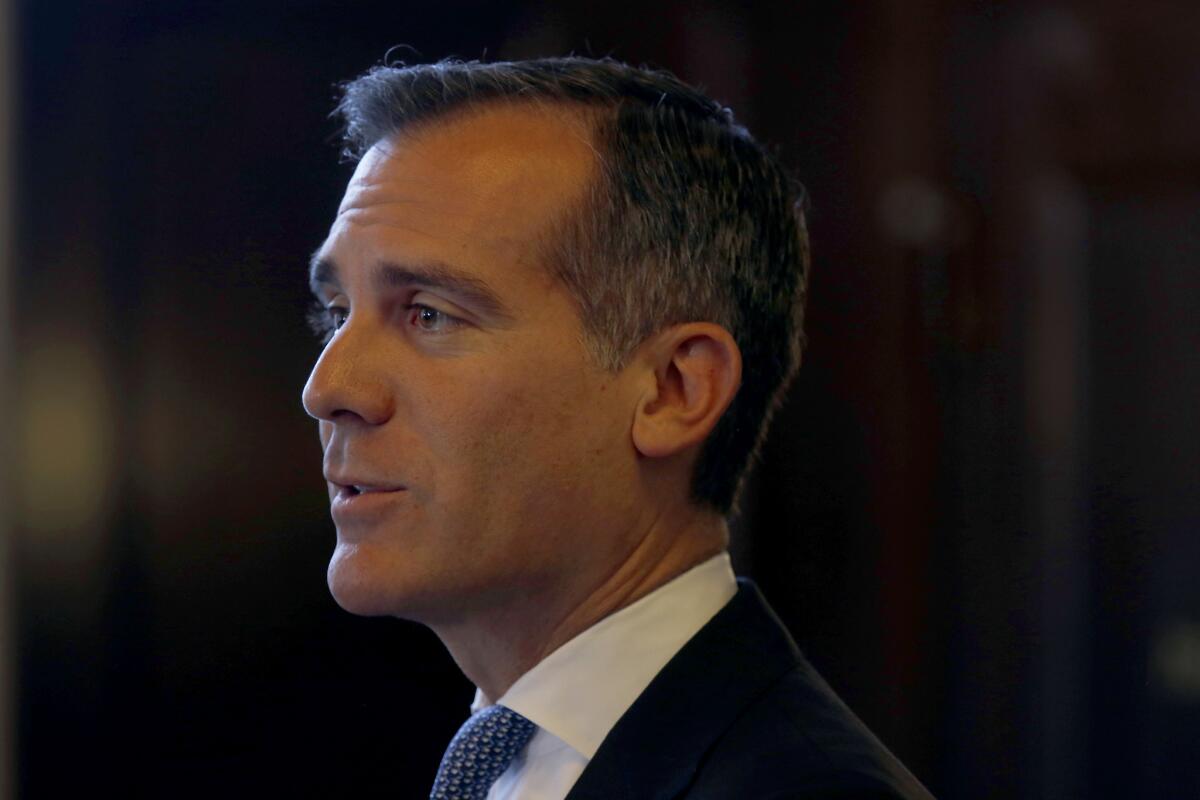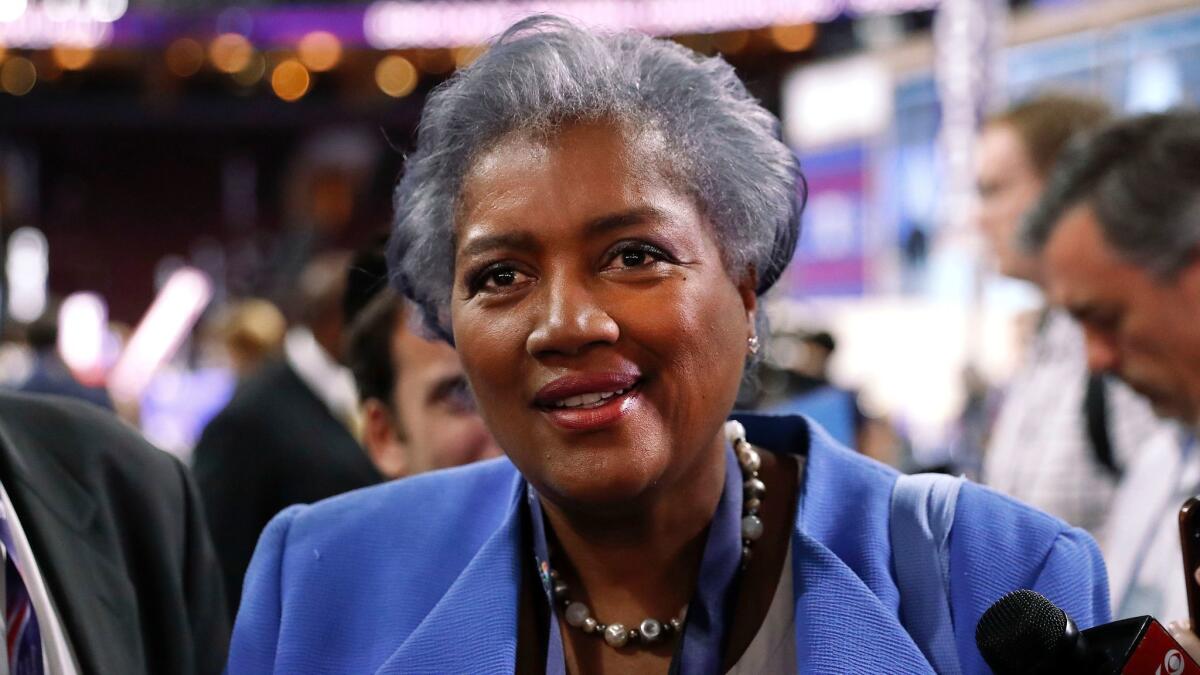What the WikiLeaks emails tell us about Hillary Clinton’s campaign (and what they don’t)

Wikileaks has disclosed another large batch of what it says are hacked emails from Clinton campaign chairman John Podesta this week. Oct. 12, 2016.
Reporting from Washington — It’s one of the greatest ironies of the 2016 presidential campaign: Hillary Clinton — long averse to public scrutiny — forced to deal with the theft and disclosure of thousands of private emails exchanged by her campaign aides and advisors.
The hacked emails of campaign chairman John Podesta, being released daily by WikiLeaks, have offered unprecedented insight into the way the Democratic nominee and her team grappled with unexpected developments and self-inflicted setbacks.
The Clinton campaign has refused to validate the emails, noting that U.S. intelligence agencies say they were stolen by Russian government hackers in an effort to affect the election.
Here’s a closer look at what’s behind some of the more attention-grabbing emails.
1. ‘Dump those emails’
Shortly after the New York Times first reported on an investigation into the apparent use by Clinton of a private email server, Podesta emailed Cheryl Mills, a longtime Clinton aide who served as her chief of staff at the State Department.
“We are going to have to dump all those emails so better to do so sooner than later,” Podesta wrote.
To Clinton critics, it seemed a brazen order to purge the communications.
But her supporters call that a misunderstanding of Washington parlance. They say Podesta was clearly referring to a “news dump,” D.C.-speak for releasing a large amount of unflattering documents in an effort to put the issue to rest. Podesta likely was saying the team should quickly release all of the emails Clinton sent from her private account and leave reporters to make sense of them.
2. ‘We need to clean this up’
After the existence of the email server became public, President Obama was among those who was quickly asked about what he knew. After a press aide circulated Obama’s statement in an interview that he learned of the server as the public did, through news reports, Mills expressed concern.
“We need to clean this up — he has emails from her — they do not say state.gov,” she wrote.
The White House has said even if the president observed that Clinton was using a non-government email address, he would not have known the details about how the account was set up or whether it relied on a private server.
3. New insight into the Clinton Foundation
Among the more intriguing revelations was the apparent rift that developed between Chelsea Clinton and Doug Band, a former senior aide to Bill Clinton.
As Chelsea Clinton took a more hands-on role in the Clinton Foundation and Clinton Global Initiative, she appeared increasingly uncomfortable with Band and the manner in which he appeared to be intermingling the foundation’s charitable endeavors with his own fledgling business interests. In an email to Podesta, Band pushes back.
“I don’t deserve this from her and deserve a tad more respect or at least a direct dialogue for me to explain these things. She is acting like a spoiled brat kid who has nothing else to do but create issues to justify what she’s doing because she, as she has said, hasn’t found her way and has a lack of focus in her life. I realize she will be off of this soon but if it doesn’t come soon enough.”
He also notes his efforts in arranging $50 million in payments for the former president, an apparent example of the complicated mingling of business deals and charity work at the foundation.
4. A Morocco quid pro quo?
In what Clinton foes call an illustration of the “pay-for-play” culture of the Clinton Foundation, Clinton’s nascent presidential campaign team navigated the complications of an apparent agreement the foundation made for the former secretary of State to participate at a Clinton Global Initiative event in Morocco.
Huma Abedin, Clinton’s closest aide, lays out that Clinton’s attendance was the condition upon which the Moroccans agreed to host the meeting. “This was HRC’s idea,” she said, using shorthand for the former secretary. “Our office approached the Moroccans and they 100 percent believe they are doing this at her request. The King has personally committed approx $12 million both for the endowment and to support the meeting. It will break a lot of china to back out now when we had so many opportunities to do it in the past few months. She created this mess and she knows it.”
Robby Mook, now Clinton’s campaign manager, appears to be concerned a month later that Clinton is still scheduled to attend. “We really need to shut Morocco and these paid speeches down,” he wrote. After the matter was released, Mook cited the fact that Clinton ultimately did not participate as proof the matter was resolved.
5. Concerns about a Joe Biden run
There were various moments of high concern within the campaign, particularly in the early stages of the primary and especially as Vice President Joe Biden considered joining the race.
Podesta was often on the receiving end of nervous questions, some from inside the campaign and more often from outside, about Biden’s plans. Among those reaching out at one point: Dreamworks CEO Jeffrey Katzenberg, a top Clinton donor. “Want to discuss POTUS and Biden,” he wrote in October.

“Still can’t figure out whether he’ll rally himself to do it,” Podesta observed in August.
As Biden increased his public profile heading into the fall, concerns seemed to rise. Neera Tanden, a longtime Clinton supporter who worked with Podesta at the Center for American Progress, wrote to Podesta Sept. 1 sharing that she heard Biden was telling union leaders he was running. “Lord, have mercy,” Podesta responded.
Less than a week before Biden’s announcement, Podesta was part of an email discussion with senior campaign officials and outside officials about a CNN report that indicated the vice president, if he ran, would have immediate access to the Obama campaign’s highly valuable email list.
In the days before Biden’s decision was made, Podesta himself inserted himself in the discussion by openly seeming to prod Biden to finally reveal his plans. He brushed off claims he was “bullying” Biden, to the delight of some in the Clinton orbit. This was one of many emails trafficked once the Biden news finally became public.
6. Scorn for Catholics?
One of the most-discussed individual emails was one that Clinton critics have cast as evidence of a bias toward Catholics on the part of Clinton’s campaign hierarchy. Trump even alluded to it at the Al Smith Dinner, an event hosted by the New York Catholic Archdiocese, as he claimed Clinton herself “hated Catholics.”
The context was a discussion about the Catholicism of Fox chairman Rupert Murdoch and NewsCorp CEO Robert Thomson.
“I imagine they think it is the most socially acceptable, politically conservative religion -- their rich friends wouldn’t understand if they became evangelical,” campaign communications director Jennifer Palmieri wrote.
Asked about the email last month, Palmieri said she did not recognize it. She also noted that she, herself, was Catholic.
7. Eric Garcetti under fire
Los Angeles Mayor Eric Garcetti was briefly a punching bag last year when he apparently flaked on a meeting in June 2015. John Podesta suggested he had little patience for Garcetti.

“Maybe he can hold out to be MOM’s VP,” he wrote, joking that the mayor could end up as the running mate to Martin O’Malley, a long shot Democratic primary candidate.
In another email, Podesta said the campaign should add Garcetti “to the BdB file,” a reference to the New York City mayor who had also annoyed the Clinton team.
8. Questioning Clinton’s instincts
Even Clinton loyalists occasionally questioned her political instincts.
In particular, Clinton concerned some of her allies with her reluctance to apologize last year for using a private email server while serving as secretary of State.
“Everyone wants her to apologize. And she should. Apologies are like her Achilles heel,” wrote Tanden in an email to Podesta. Before that, Podesta expressed his own concerns about Clinton’s political radar.
“We’ve taken on a lot of water that won’t be easy to pump out of the boat. Most of that has to do with terrible decisions made pre-campaign, but a lot has to do with her instincts,” he wrote to Tanden.
9. Suspicion of David Brock
David Brock, who started his career as a Clinton antagonist but is now one her family’s fiercest defenders, was the subject of particular derision.
Podesta and Tanden traded messages describing Brock as an “unhinged narcissist” and a “menace.”
Brock runs two super PACs supporting Clinton, but his tactics weren’t always welcome by her campaign, even though they work together under a lawyer-blessed arrangement. He particularly stoked aides’ ire in January when he called for Sen. Bernie Sanders, Clinton’s septuagenarian opponent in the Democratic primary, to release his medical records.
“Maybe he actually is a republican plant,” Tanden wrote to Podesta. “Hard to think of anything more counter productive than demanding Bernie’s medical records.”
10. Speech transcripts revealed
After leaving her post as the country’s top diplomat, Hillary Clinton made millions delivering high-priced speeches for banks and other organizations, and she refused to release the transcripts when she launched her presidential campaign.
But some of her remarks were exposed in the hacked emails released by WikiLeaks. During the primary, when Sen. Bernie Sanders was turning the issue into a cudgel against Clinton, her campaign team circulated excerpts that could prove controversial if they became public.
Many of Clinton’s comments were consistent with her eventual platform as a presidential candidate – she talked about spreading renewable energy, making the economy more fair and suggested the country should keep building on President Obama’s healthcare law.
However, the speeches also displayed a chumminess with her Wall Street audiences that was at odds with her rhetoric on the campaign trail. At one point Clinton suggested that political calculations were the reason elected officials wanted to crack down on banks after the financial crisis.
Donald Trump and his allies have tried to turn some of Clinton’s other remarks into attack lines, pointing to her support for “open trade and open borders.”
Clinton has defended herself by saying her remark about borders was a specific reference to increasing access to “energy that is as green and sustainable as we can get it.”
11. Donna Brazile and the debate question heads-up
Donna Brazile, who replaced Debbie Wasserman Schultz to become interim chair of the DNC after a separate leak of emails raised questions about the national party’s impartiality in the Democratic primary, appears to have given the Clinton campaign a heads-up on planned debate question during the primary.
That prompted new questions about her own potential favoritism in the primary.

An email came in March ahead of a candidate town hall that was set to be hosted by CNN and TV One. The subject line and the comment from Brazile indicated her concern about whether Clinton would be equipped to answer the question. Palmieri indicated it was a subject Clinton had been asked before but concedes, “not everyone likes her answer.”
In a statement after the email became public, Brazile denied having access to the questions forum hosts would be asking. She said she occasionally shared her thoughts with all campaigns.
“I never had access to questions and would never have shared them with the candidates if I did,” Brazile said.
But just this week a new email surfaced showing it was not an isolated case, leading CNN sever its relationship with Brazile as an analyst.
michael.memoli@latimes.com and chris.megerian@latimes.com
For more 2016 campaign coverage, follow @mikememoli and @chrismegerian on Twitter
ALSO:
One big reason the WikiLeaks emails aren’t as damaging for Hillary Clinton: Donald Trump
Bill Clinton, the natural, reaches out to voters in places that love Trump
More to Read
Get the L.A. Times Politics newsletter
Deeply reported insights into legislation, politics and policy from Sacramento, Washington and beyond. In your inbox three times per week.
You may occasionally receive promotional content from the Los Angeles Times.











